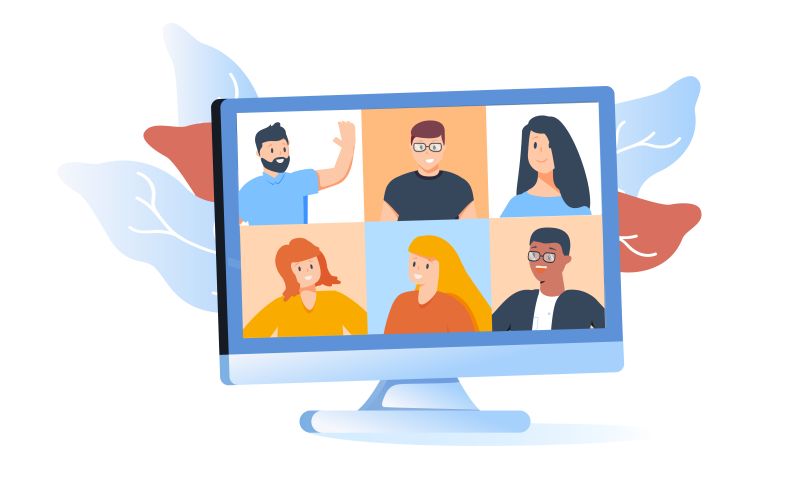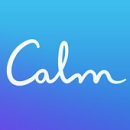
Though the learning curve for excelling when working remotely can be steep — think: trying to unplug, getting into the right rhythm at home and other challenges — its organizational advantages can shine through.
“Our team has really grown closer,” Scott Domann, chief people officer at wellness and sleep app Calm, said. “We are more empathetic toward each other as we all face different changes and situations in this new environment.”
Carolyn Dorricott, of Gong, conveyed a similar view.
“Our team has become closer since working from home because of how much we work together and support each other,” said the senior talent and development sourcer.
Such cohesiveness, though, requires companies to create cultures of camaraderie and support. At Calm, Gong, Atlassian and Homelight, those efforts include surveying employees, recognizing teammates’ efforts through something as simple as celebratory Slack messages, and programming that brings together teammates around non-work engagements.
A common point emphasized by these professionals: Stay close to the employee experience.
“Listening to what they need will always help your leadership team find the best possible approach,” Rob Allen, Atlassian’s global head of talent experience and people operations, said.
Below, team members from the aforementioned San Francisco companies share the tools and techniques their companies have leaned on to keep remote culture strong.
Sandy Liao, head of talent and HR at real estate tech outfit HomeLight, said that meetings such as town halls are paramount for encouraging a clear dialogue between leaders and employees. “The town halls allow everyone to feel connected and that we're all in this together,” she said.
What’s the most notable change you’ve seen in your company culture since transitioning to remote work?
Our team’s willingness to jump on video calls with one another. It’s so important to maintain human connections, so we always encourage everyone to turn on their videos if they can, even if they have children or pets in the background. We appreciate face time and getting a glimpse of everyone’s work-from-home stations.
When it comes to culture-building rituals, what’s one old ritual that you’ve kept or adapted, and what’s one new ritual you’ve started since going remote?
We’ve always hosted fun activities in our offices to celebrate different holidays and employee-related life events such as birthdays and engagements. Since March of last year, we’ve continued to host all these events virtually. We’ve also started hosting events that offer opportunities to include our team’s families, such as a virtual talent show and virtual cooking classes. Creating these inclusive events allows us to maintain our fun culture as a team, and it’s a great way for our employees to spend quality time with their families at the same time.
It’s extremely important to be honest about what’s going on in the company.”
What’s the most important piece of advice you’d share with other companies that are looking for new ways to build and maintain culture right now, and why?
Transparency is important for maintaining a good culture right now. It’s extremely important to be honest about what’s going on in the company. We used to have monthly all-hands; since March of last year, we’ve switched to biweekly town halls to increase companywide communication. During these town halls, during which employees have the opportunity to ask our CEO questions anonymously, we give everyone updates on our growth and challenges.
Since going remote, adjustments at Calm include implementing a more thorough “pre-boarding and onboarding communications plan” in order to get newcomers settled in at the organization, Chief People Officer Scott Domann said. “We also do our best to celebrate new hires in all of our companywide touchpoints to encourage a sense of inclusion, and publish their bios and fun facts to the company in a ‘New Hire Stories’ deck,” he added.
What’s the most notable change you’ve seen in your company culture since transitioning to remote work?
Our team has really grown closer. We are more empathetic toward each other as we all face different changes and situations in this new environment.
Working in this new world, we have had to bring more of us to work than ever before. We’ve met pets, partners, roommates and children. I love seeing this openness and inclusion of our whole selves at work. I think this shift will change the way we turn up at work — when and if we are back in an office — and how organizations will create policies toward a more flexible, people-first standard.
When it comes to culture-building rituals, what’s one old ritual that you’ve kept or adapted, and what’s one new ritual you’ve started since going remote?
We practice mindfulness at the start of each day, moving from in-person to a virtual space, where we share a sense of belonging and appreciation. A people-first strategy is essential, from onboarding to ongoing engagement strategies. Whether the workplace stays remote or distanced, ensuring strong companywide communication and offering tools and resources to meet employees where they are is a recipe for success.
With now-virtual onboarding, the biggest improvement we’ve made is a detailed pre-boarding and onboarding communications plan. Over-communication is key. New hires need to feel comfortable knowing what time and on what day we ask them to be online, how they get online, what meetings they can expect on that first day and a person to contact if they get stuck with anything as they get set up.
A people-first strategy is essential, from onboarding to ongoing engagement strategies.”
What’s the most important piece of advice you’d share with other companies that are looking for new ways to build and maintain culture right now, and why?
Care more. Seek to understand. Ask deeper questions: How are you doing? How are you really doing? The strongest lever in building an impactful employee experience is strong leadership. An employee’s view of their role and company is formed through the way they’re managed and the leadership they experience. It’s critical that we invest in building the best managers that we can to lead our teams. It’s also important that these great leaders own the employee experience and don’t leave it up to a centralized HR team. We can provide guidance, templates and tools to engage our teams — but the impact is delivered through our leaders.
At the sales software company, which announced a $200 million Series D last August, Senior Talent and Development Sourcer Carolyn Dorricott recommended leaders have an empathetic mentality when trying to build culture remotely. “Understanding that people have to learn a new environment, are tired, distracted and need to learn what motivates them again will allow you to brainstorm how to best help,” she said.
What’s the most notable change you’ve seen in your company culture since transitioning to remote work?
Gong has always had a collaborative work environment. When COVID-19 hit, we had to not only adjust to meeting new colleagues and forming relationships over Zoom and Slack, but we also had to become more creative and collaborative. We had to work together to create new messaging, share what was working and what wasn't, and continuously chat to keep the energy alive. Our team has become closer since working from home because of how much we work together and support each other.
When it comes to culture-building rituals, what’s one old ritual that you’ve kept or adapted, and what’s one new ritual you’ve started since going remote?
Although weekly call reviews can be viewed as a coaching ritual, I’d also count it as a culture-building ritual: While it gives us time to learn how others perceive conversations, it also gives us time to work together and laugh when we listen to calls.
Additionally, we’ve started writing congratulatory Slack messages to our entire SDR team when a colleague hits quota. We also do random call-outs for our colleagues when they book a really great meeting or come up with an amazing outbounding idea. Continuous learning, sharing ideas and giving credit where it’s deserved are some of Gong’s most important ideals.
Our team has become closer since working from home because of how much we work together and support each other.”
What’s the most important piece of advice you’d share with other companies that are looking for new ways to build and maintain culture right now, and why?
Be human. Reps are struggling to adjust to a remote environment and some still aren’t used to it. Understanding that people have to learn a new environment, are tired, distracted and need to learn what motivates them again will allow you to brainstorm how to best help. This will allow you to create programs, like ERGs and culture committees, and organize events with them to help educate the larger organization.
The workplace experience team at Atlassian — the software organization whose tools include Jira and Confluence — has been busy bringing together team members around the world via online events and more. “Now, an Atlassian in Sydney can attend a cooking class hosted in Amsterdam,” Global Head of Talent Experience and People Operations Rob Allen said.
What’s the most notable change you’ve seen in your company culture since transitioning to remote work?
As a team-first company, we’ve always strived to have an emphasis on a bottom-up approach, where each team comes together to decide collectively what it needs in order to succeed. However, as the impacts of the pandemic unfolded, we had to make decisions quickly to best support Atlassians around the globe. We needed to make top-down decisions to give Atlassians guidance on where they could work, what support we’d be giving to help set up home offices and overall guidance on how to shift the ways we worked. We quickly formed working groups from members across the business at all levels to suggest changes and how to implement them. Because decisions were made quickly, we thoroughly discussed their effects as a team before rolling out changes.
At first, changing how we worked felt like a daunting task, but we quickly realized that we were well-equipped for it. Our products are built to support teams of all types and sizes, whether they are co-located or distributed. Even before the pandemic, we had teams distributed across continents collaborating effectively. Many of our practices, like documentation, already favored distributed collaboration. Because of this, we were able to adapt quickly; after only a couple of months in practice, we decided to drive toward a policy shift that would have, as its North Star, the option for all Atlassians to permanently work remotely.
When it comes to culture-building rituals, what’s one old ritual that you’ve kept or adapted, and what’s one new ritual you’ve started since going remote?
ShipIt has been a decade-long tradition here: Each quarter, we give employees 24 hours to team up and think, build, prototype or just generally create anything that’ll help spur something new for our people, our business or even our community. We piloted our first remote ShipIt well before the onset of the pandemic and learned that it was entirely possible; it actually supported a higher degree of collaboration. Teams formed with members from different offices and, in some cases, continents.
Since going remote, we’ve realized that we’ve been able to greatly expand our offerings and ability to reach all Atlassians, regardless of where they’re located. Our workplace experience team has set up a variety of unique experiences such as pizza-making, children’s activities, exercise classes, magic shows and even beekeeping tutorials through pre-recorded video calls. Now, an Atlassian in Sydney can attend a cooking class hosted in Amsterdam. In January, we’ll be piloting our first-ever virtual global holiday party.
Listen to your people and lean on their input when deciding how to move forward.”
What’s the most important piece of advice you’d share with other companies that are looking for new ways to build and maintain culture right now, and why?
Listen to your people and lean on their input when deciding how to move forward. Listening to what they need will always help your leadership team find the best possible approach. It’s also the most empathetic and human way to do it.
At the onset of the pandemic, we created a one-stop-shop resource on our own product, Confluence, to house all communications, resources and decisions related to our COVID-19 response. Called OneSource, it hosted a variety of information such as office closures, FAQs and COVID-19 resources for families. OneSource’s primary goal was to keep our global employee base aligned, in the know and supported throughout the evolving situation.
Additionally, we sent out pulse surveys and created resources for managers to support their teams. The survey results were clear: Our teams were stressed and needed support. This allowed us to broaden our support and expand offerings such as special leave, mental health resources via Modern Health, additional time off and more.













